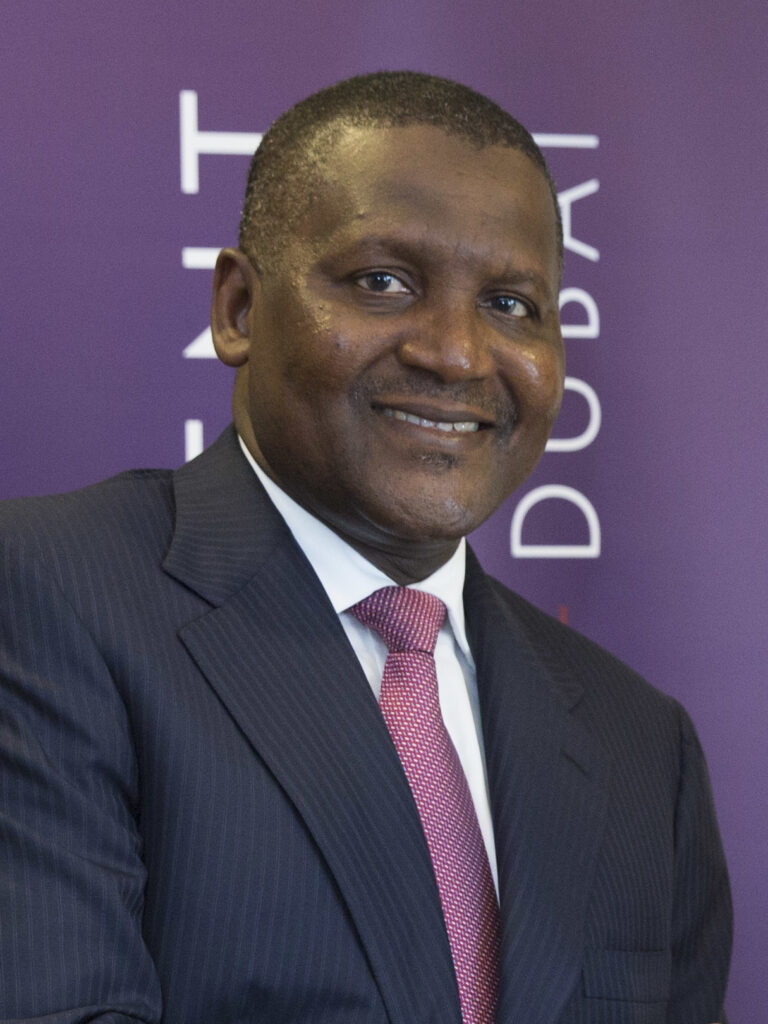Fuel Feud Escalates: Dangote Refinery Rejects DAPPMAN’s N1.5 Trillion “Subsidy” Demand, Dares Legal Showdown

In a blistering escalation of Nigeria’s downstream petroleum crisis, the Dangote Petroleum Refinery has thrown down the gauntlet to the Depot and Petroleum Products Marketers Association of Nigeria (DAPPMAN), accusing the group of demanding an eye-watering N1.505 trillion annual “subsidy” to subsidize their logistics costs and match the refinery’s competitive gantry prices. The refinery, Africa’s largest at 650,000 barrels per day, dismissed the request as a throwback to the corrupt subsidy regimes that drained federal coffers for decades, vowing not to hike prices or foot the bill – and inviting DAPPMAN to “go to court” if they disagree.
The standoff, which has gripped Nigeria’s energy sector for weeks, pits billionaire industrialist Aliko Dangote’s flagship project against a powerful lobby of importers and depot owners who claim they’re being squeezed out of the market. With fuel prices already volatile post-subsidy removal, the dispute threatens to ripple into higher pump costs for everyday Nigerians, even as Dangote touts its role in stabilizing supply and boosting exports.
The Spark: Pricing Wars and Smuggling Allegations
The feud ignited in mid-September when DAPPMAN publicly accused Dangote of selling petrol cheaper to foreign traders in Togo (at N65 less per litre) than to local marketers, creating an uneven playing field. They also alleged the refinery was restricting access to coastal vessel loading, forcing members to rely on costlier gantry lifts, and even sponsoring strikes by the Nigeria Union of Petroleum and Natural Gas Workers (NUPENG) to disrupt operations.
Dangote fired back on September 15 with a full-page advert in major dailies like The Guardian, Punch, and ThisDay, labeling DAPPMAN’s tactics as sabotage rooted in a desire to perpetuate fuel imports. The refinery claimed marketers were round-tripping: buying Nigerian-produced fuel, smuggling it to neighboring countries for triple the profit, and re-importing it as “dumped” stock. Between June and September 2025, Dangote exported 3.23 million metric tonnes of refined products (PMS, AGO, and aviation fuel), while importers brought in 3.69 million tonnes – a net drain on Nigeria’s economy, per the refinery’s data.
On September 17, Dangote doubled down in a management statement, revealing the subsidy ask: DAPPMAN allegedly wants the refinery to absorb N75 per litre in extra costs for coastal delivery (N70 for freight via NIMASA/NPA routes + N5 for vessel pumping). Based on daily demand (40 million litres PMS + 15 million litres AGO), that’s N1.505 trillion yearly – equivalent to 1.5% of Nigeria’s 2025 GDP. “We have no intention of increasing our gantry price… nor paying a subsidy that defrauded the Federal Government for years,” the statement read, urging marketers to “lift directly from our gantry and benefit from our logistics-free initiative.”
DAPPMAN, representing major players like Matrix, AA Rano, AYM Shafa, and NIPCO, rejected the claims as “misleading and damaging” on September 18. Executive Secretary Olufemi Adewole called the subsidy figure a distortion, insisting members are tax-compliant and focused on de-escalating NUPENG tensions – not instigating them. They issued a seven-day ultimatum for Dangote to retract smuggling accusations or face a lawsuit, while questioning why the refinery offers $40/MT discounts to foreigners but not locals. “Demanding marketers build refineries betrays a lack of understanding of modern petroleum economies,” Adewole shot back, also flagging safety risks in Dangote’s planned 4,000 CNG trucks.
Broader Fallout: Strikes, Courts, and Political Whispers
The drama has spilled over. NUPENG’s brief depot shutdown last week – protesting non-unionization of Dangote’s truck drivers – was halted by a National Industrial Court injunction on September 17, averting fuel queues. Senator Mohammed Ali Ndume (Borno South) urged restraint, warning of a “poisonous media narrative” aimed at tarnishing Dangote, whom he praised as Nigeria’s only true private refiner.
Public sentiment on X (formerly Twitter) is fiercely pro-Dangote, with users branding DAPPMAN “enemies of progress” and “subsidy scammers.” Posts like “DAPPMAN can go hug a transformer – Nigeria is with Dangote” have racked up thousands of likes, echoing frustrations over past import cartels. Critics, however, see it as a monopoly play: “Dangote’s oligopoly imposes high PMS prices for maximum profits,” one user noted.
Analysis: A Clash of Empires in a Post-Subsidy Era
At its core, this isn’t just about N75 per litre – it’s a seismic shift in Nigeria’s fuel ecosystem. Dangote’s $20 billion behemoth, operational since early 2025, was meant to end 90% reliance on imports, save $10 billion in forex annually, and position Nigeria as West Africa’s refining hub. It processes imported crude (over 60% from abroad) into high-quality fuel at gantry prices of N820/litre for PMS – below global benchmarks – while exporting surplus to the U.S. and Europe.
DAPPMAN, heirs to the old guard, built empires on subsidized imports and blending substandard products in coastal depots. Their demand for cost absorption is a desperate bid to preserve margins in a deregulated market where Dangote’s scale (500 million litres monthly stock) undercuts their model. Evidence? Marketers imported more than Dangote exported in Q3 2025, despite local refining capacity – classic “dumping” to exploit arbitrage, as Dangote alleges.
Economically, yielding to DAPPMAN would jack up pump prices to N950/litre for petrol and N1,090 for diesel, fueling inflation (already at 34% in August 2025) and eroding President Tinubu’s reform gains. Politically, it’s a test for the administration: Back Dangote, and risk accusations of cronyism; side with importers, and betray the “end to fuel scarcity” pledge. The refinery’s tax-compliant partners (e.g., MRS Oil) are already lifting directly, proving gantry access works – DAPPMAN’s coastal fixation smells like profit protection, not necessity.
Long-term, this could force market consolidation: Smaller depots fold, big players like NIPCO adapt, and Dangote’s CNG push accelerates cleaner energy. But without regulatory teeth from the Nigerian Midstream and Downstream Petroleum Regulatory Authority (NMDPRA), smuggling persists. Tinubu’s team must mediate – perhaps via incentives for local blending – to avoid a full-blown supply crunch.
Dangote’s defiance? Bold, but substantiated: No monopoly if competitors refuse efficiency. As one X user quipped, “Build your own refinery or step aside.” For now, the courts loom, but Nigerians – weary of queues – side with the refiner delivering today.
